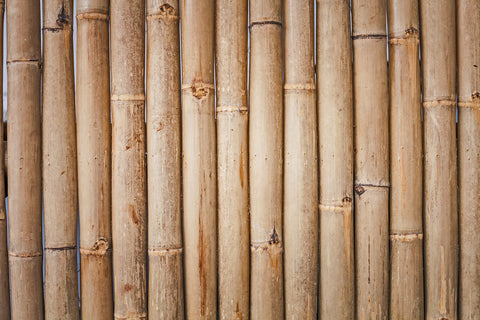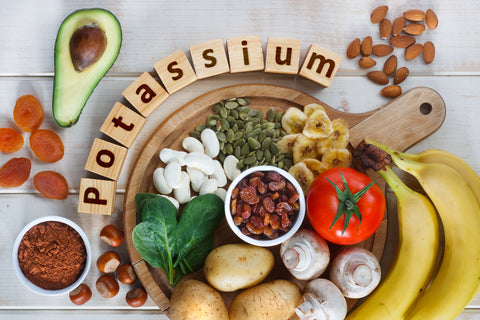Silicon (Si), known also as silica, is the second most available element after oxygen found in the earth’s crust. It is present in clay and sand, and rocks like quartz and granite.
Silica is present in the human body in the form of either a derivative of silanate or silicic acid. It is a vital trace mineral required by human body for strong hair, flexible joints, glowing skin, and strong bones. It also increases the overall benefits of vitamin D, glucosamine, and calcium.
In the past it was believed silica was just a trace mineral, and that we only needed a very small amount of it to maintain health. However, with further research, silica is now considered one of the top 12 elements necessary for life.
Silica’s importance in overall optimal health has been recognized for quite some time. As early as 1878, Louis Pasteur predicted that silica should be regarded as an important therapeutic substance for many health problems.
Silica has been proven to benefit the health of our bones, hair, skin and nails. Human hair contains 90 micrograms of silica per every gram. Only our bones contain more of this mineral, and that is the reason why we must make sure we have enough of silica to have healthy bones and hair.
According to one research review,
“Orthosilicic acid (silica) is the form predominantly absorbed by humans and is found in numerous tissues including bone, tendons, aorta, liver and kidney. Compelling data suggest that silica is essential for health although no RDI has been established. However, deficiency induces deformities in skull and peripheral bones, poorly formed joints, reduced contents of cartilage, collagen, and disruption of mineral balance in the femur and vertebrae… A few rodent studies have been conducted, which indicate a No Observed Adverse Effects Level of 50,000 ppm (mg/L) for dietary silica. In conclusion, many forms of silica exist in nature and compelling data support myriad beneficial effects of silica in water.”
Deficiency
Western populations (including UK) are deficient in dietary silica in comparison with people living in China or India. For most Western populations dietary intake of Silica is between 20-50 mg per day. Much higher intakes (140-204 mg/day) have been reported in China and India due to higher intake of plant-based unrefined and higher in fibre and silica foods.
UK tap water contains very low levels of dissolved silicon or silicic acid (often referred to as silica), which has a negative impact on nation’s health as this mineral is required to remove toxic aluminium from the brains.
In most developed countries (including UK and US) the average person ingests only between 20 to 60 milligrams of silica per day, depending upon their diet. On the other hand, studies have shown that people who have supplemented with silica at 375 mg per day, had good results in maintaining and regaining their health proving that the intake of 20 to 60 milligrams per day is far from being adequate. it is therefore suggested that daily silica supplementation may be very beneficial.
After 40 silica levels starting to go down, and some sources suggest that with women it’s a far worse than it is with men. Daily we may be losing 10-40 mg of silica every day.
Best Natural Sources
Bamboo extract is the richest known source of silica as it contains 70% organic silica and therefore is significantly higher source of silica than even horsetail herb which contains about 25% of this mineral.
After bamboo, horsetail herb continues to be one of the most abundant sources of silica in the plant kingdom. It is so rich in this mineral, that it was once used to polish metal in the Middle and Medieval ages, when it was nicknamed “scouring rush.” The high silica content made horsetail a popular ingredient in shampoos, skincare products, as well as in nutritional supplements.

In traditional medicine, the horsetail herb concoctions and other extracts has been used to treat fluid retention (including oedema), various inflammations, kidney stones, urinary tract infections, difficulties controlling urination, and other problems.
Food Sources
Apart from bamboo extract, horsetail and clay, much smaller concentrations of silica are found in certain foods including millet, whole oats, barley, quinoa, buckwheat, apples, cherries, almonds, seeds, potatoes (with skin), bananas, or green beans, raw cabbages, carrots, onions, and cucumbers. Refined foods, such as white flour products, are deprived of silica.
Possible Silica Applications
- Thin and weak hair and hair loss
- Brittle nails
- Dry skin
- Arthritis
- Weak connective tissue (joint, ligaments and muscles)
- Weak bones and teeth
- Cellulite
- Poor gum health
- Weak immunity
- Weak capillaries and blood vessels
- Inflammation in the veins (phlebitis, thrombophlebitis)
- Wounds and burns
- Aluminium accumulation
- Cardiovascular support
- Stomach and digestive disorders
Health Benefits
Silica & Collagen
- Collagen is the tough fibrous material that holds our tissues together. Many ageing health problems are a result of our inability to maintain adequate collagen production. Joint deterioration, cellulite, dry skin, brittle bones, weak teeth and gums, hardening of the arteries, or even inability to digest food properly are related to collagen deficiency. When we are younger, Silica levels in our body are high enough to maintain our skin, bones and joints are healthy and flexible. As we age, Silica levels decline and without adequate tissue levels of this mineral, we develop many of the symptoms of ageing including osteoarthritis, weakened digestion, cellulite, or wrinkled skin.
Hair
-
Silica is a key component when it comes to the health of the hair, and the efficiency of silica is well-documented and supported by numerous studies. Subjects who received silica supplements showed significant improvements. Silica strengthen hair and treats hair problems by making hair stronger (1), increasing the volume of the hair, improving density of the hair, eliminating the damaged skin cells on the scalp, and promoting collagen production (2).
-
Alopecia is caused by deficiency of silicon. This mineral encourages the growth of thick and healthy hair. It also increases the shining of hair.
Skin
- Silica stimulates the rapid re-growth of damaged skin tissue. It is important for optimal synthesis of collagen and for activating the hydroxylation enzymes, improving strength and elasticity of the skin. Careful analyses of scientific research on silica leads to a clear conclusion that silica is essential for the body to create and maintain collagen.
Acne
- Silica may help combat acne by removing toxins, boosting the production of collagen and rebuilding the connective tissues.
Cellulite
- Deficiency of collagen in the body causes cellulite. Silica, by increasing production of collagen helps to prevent and treat cellulite.
Ageing
- Gastrointestinal absorption of Si decreases with ageing (3).
Bone Health & Osteoporosis
-
There is no question that silica plays a very important role in bone formation and in bone health, and like Vitamin K2 and Vitamin D, Silica seems to be much more important for strong bones than Calcium.
-
Professor Kervran proved that 14 atoms of silica and 6 atoms of carbon make 20 atoms of calcium. He gave chickens silica and no calcium, and they produced solid, hard calcium eggshells. When he took the silica out of their diet, the eggshells were soft and couldn’t form the calcium.
-
Silica promotes a proper balance between calcium and magnesium in the body. This balance is one of the ways of preventing osteoporosis. There have been numerous studies demonstrating this benefit of dietary silicon (3).
-
Bone strengthening and support through enhanced calcium absorption Within bone, silica is the essential component making up the collagen matrix upon which calcium is deposited. This relationship is so fundamental that it is truly impossible to form bone without both calcium and silica. In fact, researchers are exploring the possibility that supplementation of silica, rather than calcium may be what is needed for maintaining strong bones.
Joint Health & Arthritis
- Silica supplements can be helpful in improving the flexibility of the joints as they strengthen the connective tissues by building collagen.
Cardiovascular Health
- Silica may help maintain healthy arteries and veins. This fact has been known since 1958 when it was found that arteriosclerotic artery walls showed excessively high levels of calcium and lower than normal levels of in silica.
Stomach And Digestive Disorders
- Most disorders of the stomach and digestive tract involve a degradation of the lining (mucosa) in the G.I. tract. Silica is an essential element involved in rebuilding and maintaining these tissues.
Immune System
- Silica has an alkalising effect that is important because poor dietary habits result in creating acidic environment in the body that affects the immune system and contributes to various illness. In addition, silica also supports immune system by helping manufacture antibodies, the special weapon our immune system uses to fight invaders.
Alzheimer’s
According to the research, silica from bamboo extract is not only beneficial for our hair, skin, nails or bones but may also help reduce the risk of Alzheimer’s disease by supporting removal of aluminium from the body.
“Over the last 10 years, my team at Keele University has been looking into the effectiveness of drinking water high in silicon to help remove aluminium from the body. Aluminium is a toxin which has been strongly linked to the development of Alzheimer’s as well as other human diseases including Parkinson’s disease and Multiple Sclerosis.”
“What we have found in clinical trials, involving both healthy individuals and individuals with disease, is that drinking around a litre of silicon-rich mineral water every day can speed up the removal of toxic aluminium from the body via the kidneys and ultimately urine. In fact, our studies showed that individuals experienced significant reductions in their body burden of aluminium, including falls of up to 70% in one case, over a 12-week period.”
“Silicon-rich mineral waters help to remove aluminium from the body because they are rich in soluble silicon or silicic acid. This form of silicon immediately follows water molecules through the gut wall and into the bloodstream where it forms a complex with aluminium called an hydroxyaluminosilicate. This form of aluminium can be easily filtered from the blood by the kidney. Hence, silicon-rich mineral waters increase the excretion of aluminium in the urine” (4).
“The women with Alzheimer’s disease were 2.7 times more likely to have daily silica intake considerably lower than those without Alzheimer’s disease, the researchers found. They suggest that silica is a “natural antidote” to aluminium, which has been linked to the formation of so-called senile plaques in the brain” (5).
Supplementation
In most developed countries (including UK and US) the average person ingests only between 20 to 60 milligrams of silica per day, depending upon their diet. On the other hand, studies have shown that people who have supplemented with silica at 375 mg per day, had good results in maintaining and regaining their health proving that the intake of 20 to 60 milligrams per day is far from being adequate. It is therefore suggested that daily silica supplementation may be very beneficial.
Although silica is the second most prevalent element on earth there is a need to supplement with for the following reasons: First, as we age, our body retains less and less silica. Secondly, silica does not seem to occur in sufficient amounts in the foods we consume, especially when we consume mostly refined products and avoid foods such as whole oats, millet, or barley. Refined and processed products have very little or no silica. As we get older, we need more silica to stay healthy, and it looks like we don’t get enough of it from dietary sources and water. For this reason, supplementation seems to be a reasonable solution.
Bamboo Extract is the richest known source of silica as it contains 70% organic silica and therefore is significantly more potent source of silica than even horsetail herb, regarded as one of the highest natural sources of this mineral.
Recommended Daily Intake
Although compelling data suggest that silica is essential for health yet no RDI has been established by now.
Safe Upper Limit
The safe upper limit for silica from supplements in EU countries is set at 700mg per day. The US doesn’t seem to have SUL for this mineral.
Safety
Supplementing with organic silica from bamboo extract seems to be safe. Studies concluded that oral supplements containing bamboo extract (silica) can be an effective and safe method for significant hair growth (6).
Animal studies indicate levels of 50,000 ppm (mg/L) for dietary silica produced no adverse effects (7).
Related Articles
- Hair Loss & Damaged Hair
- Health Benefits of Biotin
- Health Food Business - Skin Conditions
- The Best Vitamins for Women
- What Causes Cellulite and How to Reduce It?
References
- Cosmetics | Free Full-Text | Anti-Aging Effects of Monomethylsilanetriol and Maltodextrin-Stabilized Orthosilicic Acid on Nails, Skin and Hair | HTML (mdpi.com)
- Effect of oral intake of choline-stabilized orthosilicic acid on skin, nails and hair in women with photodamaged skin - PubMed (nih.gov)
- SILICON AND BONE HEALTH - PMC (nih.gov)
- Why everyone should drink silicon-rich mineral water - The Hippocratic Post
- Silica May Prevent Alzheimer's (rejuvenation-science.com)
- Bamboo Extract for Hair Growth: Research and Studies - Hairguard
- The chemistry of silica and its potential health benefits - PubMed (nih.gov)
Sources
- J Nutr Health Aging. 2007 Mar-Apr;11(2):94-7. The chemistry of silica and its potential health benefits. Martin KR1. https://www.ncbi.nlm.nih.gov/pubmed/17435951
- Chen F, Cole P, Wen L, et al. Estimates of trace element intakes in Chinese farmers. Community and International Nutrition. 1994;124:196–201.
- Anasuya A, Bapurao S, Paranjape PK. Fluoride and silicon intake in normal and endemic fluorotic areas. Journal of Trace Elements in Medicine and Biology. 1996;10:149–155.
- Sophie Gillette-Guyonnet, Sandrine Andrieu, Fatemeh Nourhashemi, Viviane de La Guéronnière, Hélène Grandjean and Bruno Vellas; Cognitive impairment and composition of drinking water in women: findings of the EPIDOS Study; American Journal of Clinical Nutrition, Vol. 81, No. 4, 897-902, April 2005.
- Lemmo, E.Q. 1998 Silica. Keats Publishing
- Bergna, H.E. 1994. The Colloidal Chemistry of Silica. American Chemical Society
- Kaufmann, I 1992 Silica: The Amazing Gel. Canada: Alive
- Carlisle, E.M. 1986. Silicon as an essential element in Animal Nutrition. John Wiley and Sons, Inc.
- The Chemistry of Silica. by Ralph K. Iler. John Wiley and Sons, Inc., June 1979
- http://www.eidon.com/silica_article/
Any information or product suggested on this website is not intended to diagnose, treat, cure or prevent any medical condition. Never disregard medical advice or delay in seeking it because of something you have read on this website. Consult your primary healthcare physician before using any supplements or making any changes to your regime.




